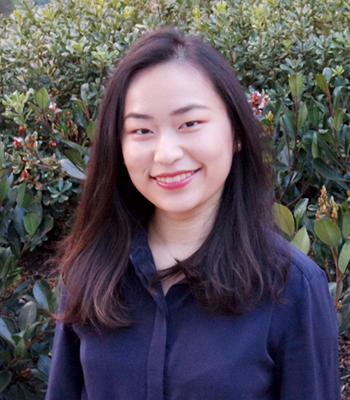Interview with Jiayu Fu
UCSD Psychology BS with Specialization in Social Psychology, and Management Science BS ’18, attending Human Resources Management program, Ohio State University's Fisher College of Business
1. What did applying to graduate school involve?
- Research the programs generally through programs' websites or reach out to people who may have some knowledge about the field you are interested in
- Have some rules in your mind as your selection standards
- With lots of info and selection
rules you have now, narrow down the range to have a listfor your target schools - Know which school is your first choice, and which is the safe one
- Visit the programs' websites again and write their requirements and deadlines down (Requirements like GRE/GMAT, GPA, work experience, resume/CV personal statements' questions, etc.)
- Make a plan: when do you want to settle down your test scores and when do you want to have a general draft of your personal statement
- Follow your plan and check out the program websites once open to see if there is any updated info
2. Can you provide a general timeline of how the application process went?
- June 2017: Started researching schools and began working on the general version of my essay at the same time.
- Summer 2017: Studied GRE and took the test.
- September 2017: Contacted recommenders and talked about the letter of recommendation with them.
- November 2017: Tailored the general version essay into particular ones for each school in order according to the deadlines. I started to customize the essay for each school one month before its deadline. My first deadline is January 15, and the last one is March 16. However, different programs have different deadlines. For
PhD programs and many programs in the fields other than Business, their deadlines are usually in Octobers or even earlier. Be prepared in advance!
3. Were there any resources that you relied on that were especially helpful in the application process? Were there any persons that helped you especially?
I used Magoosh for GRE study.
I think graduate program applications are much easier than undergrad applications since there are fewer required materials/documents and also since grad essay questions are very similar. Graduate programs usually ask you why you choose this field and why this program. Their essay questions are very focused on your interest in this field.
4. Did you have to be interviewed, and if so, what were the interviews like?
I was interviewed online through interview websites. The questions were pre-recorded. Different programs had different requirements. Some schools didn’t give you preparation time, but some did. My answers were also video recorded. The questions I had were all program-related and interest-related. I used my essay to answer them. However, I know some schools may ask weird questions like what is the
5. Did you have to take any additional classes beyond those required for your major, in order to qualify for the programs you applied to?
I chose Management Science as my second major in order to complement the business side. However, I recommend Business minor since the courses are about Business theories and are more practical for future use in the business world. The courses under Management Science are all
6. Are there any other tips that you would offer to students that are considering applying for the same programs that you applied (and were accepted) to?
There is no public ranking for HRM master programs. However, the top 5 I know from my campus visits
7. What would you attribute your success in graduate applications to?
(1) Early plan and early preparation: I started to think about my future career choice before I entered college and found opportunities to test my interests in a specific field through trial and error. I was building up my resume at the same time, so I had some professional experiences and a good resume when I needed it to contribute to my graduate application.
(2) Build connections: I met one of my mentors in our school’s career fair and kept in touch after the event. She gave me great suggestions about how to improve my communication skills and introduced many things in HR field. I also got my favorite lab job through TA’s office hours. Be modest and always learn from other people!
(3) Know what you need and what you want: Money? Interest? Or you can deal with both at the same time? What are your strengths and weaknesses? This is a personal thing, so you have to work on it by yourself first. If you need help, see (2) and reach out to people for help.
(4) Don’t give up.
